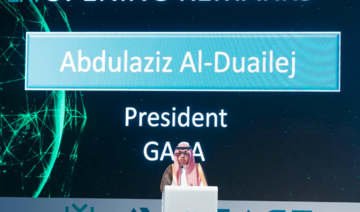India’s Finance Minister P. Chidambaram met top UAE officials on Sunday and discussed the scope of investment in the infrastructure sector and corporate bonds.
General Shaikh Mohamed bin Zayed Al-Nahyan, Abu Dhabi crown prince and deputy supreme commander of the UAE Armed Forces, received the minister at Emirates Palace in Abu Dhabi with many other top dignitaries.
General Shaikh Mohamed and Chidambaram discussed bilateral relations between the UAE and India, and ways to promote them in service of the common interests of the two friendly countries and their peoples.
The meeting emphasized the importance of continuing cooperation between the two countries in all spheres, in education, investment and trade in particular, and the tapping of the expertise and potentials of both countries to support joint projects in the public and private sectors.
Indian Embassy sources disclosed that both countries have agreed in principle to start negotiating Bilateral Investment Protection Agreement (BIPA).
“Both sides have agreed to start the negotiations next month,” said M.K. Lokesh, Indian Ambassador to the UAE, who was present at Chidambaram’s meetings with UAE officials.
Chidambaram also met with Shaikh Hamdan bin Rashid Al-Makthoum, UAE finance minister and deputy ruler of Dubai, in a separate meeting in Dubai.
Currently, India and the UAE are largest trading partners to each other with $ 74.723 billion bilateral trade during the 2012-2013 financial year ended in March. However, India is trying to attract more investments from the UAE.
Chidamabram, who arrived in the UAE on Saturday, met Abu Dhabi Investment Authority (ADIA) Managing Director Shaikh Hamed Bin Zayed Al-Nahyan.
The Indian ambassador said the two sides discussed ways to strengthen investments in each others’ countries and the finance minister sought more investment from the UAE, especially in the infrastructure and corporate debt sectors.
The visit is part of Chidambaram’s global tour to attract foreign investments. He has held similar investor meets in Hong Kong, Singapore, the UK, Germany, France, Japan, Qatar, Canada and the United States to attract foreign investment into India.
Chidambaram has been emphasizing that India offers “unlimited” investment opportunities in the infrastructure sector and the country is looking at spending around $ 1 trillion over five years in areas such as roads, airports and seaports.
India is betting big on foreign resources to finance the Current Account Deficit (CAD), which had widened to a record high of 6.7 percent in October-December quarter of 2012-13. — With input from agencies
India, UAE seek investments in corporate bonds
India, UAE seek investments in corporate bonds
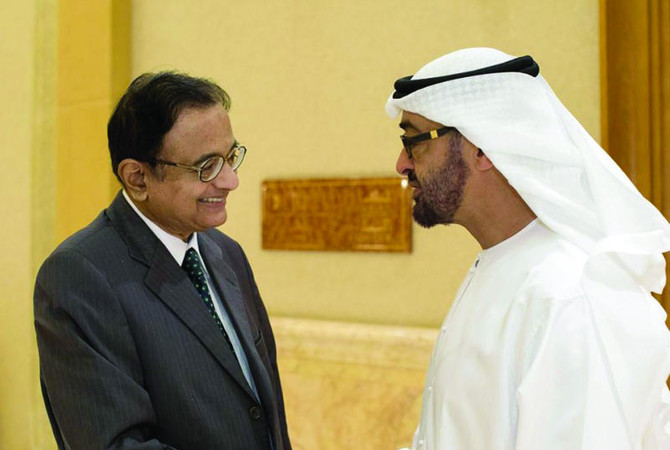
Saudi airports awarded customer experience accreditation, elevating travel services
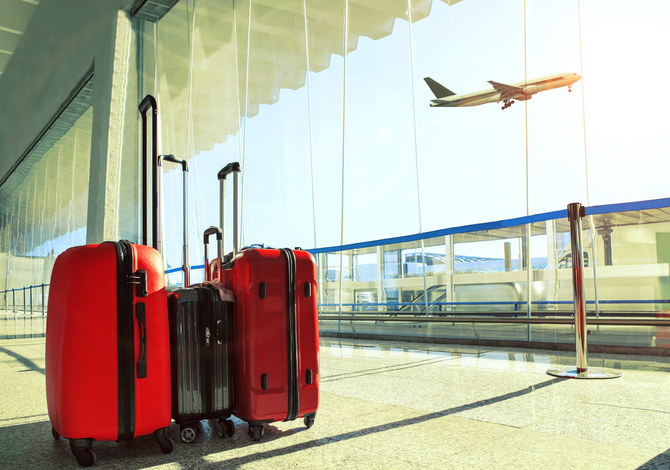
RIYADH: Customer service offerings at 16 Saudi airports have have recognised with a prestigious global award.
The Airports Council International’s Customer Experience Accreditation for 2024 has recognised facilities operated by the Kingdom’s Cluster2 Airports Co., which include Abha International Airport, Al-Jouf Airport, and Al-Qurayyat Airport.
Additionally, they consist of Bisha Airport, Dawadmi Airport, and Hail International Airport, as well as King Abdullah bin Abdulaziz Airport, King Saud bin Abdulaziz Airport, and Najran Airport.
“This accomplishment is not merely a testament to the quality and efficiency that we deliver; it also underscores our persistent dedication to enhancing the journey of each customer who passes through our gates,” the company said in an X post.
The ACEA program assists airports in enhancing customer experience management by guiding them through a comprehensive review and training process, which emphasizes stakeholder and employee engagement, as well as staff development, according to its website.
Other airports to receive this accreditation include Prince Abdul Mohsen bin Abdulaziz International Airport, Prince Nayef bin Abdulaziz Airport, and Rafha Airport.
Moreover, they include Sharurah Airport, Taif International Airport, Turaif Airport, and Wadi Al-Dawasir Airport.
The achievement of these airbases is a testament to the robust support and consistent oversight provided by the General Authority of Civil Aviation and the company, the Saudi Press Agency reported.
These airports have been acknowledged by ACI for their ongoing commitment to delivering exceptional services for travelers.
Ali Masrahi, CEO of Cluster2 Airports Co., expressed his satisfaction with this achievement, emphasizing the company’s focus on three key areas: understanding customer needs, strategic planning tailored to traveler requirements, and continuous improvement through monitoring key performance indicators across all aspects of the passenger journey.
Accor to build 45 new hotels in Saudi Arabia by 2030: CEO
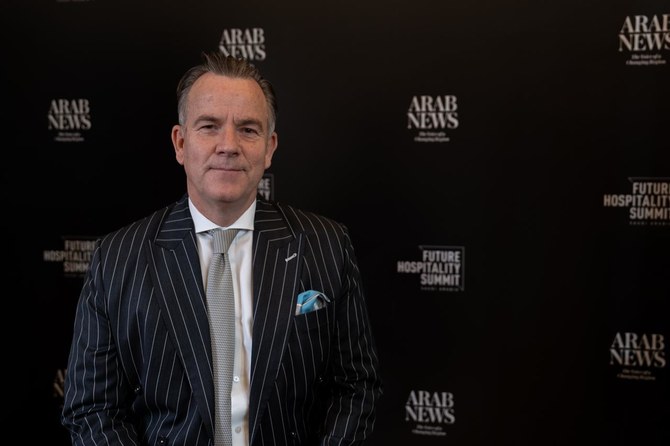
RIYADH: French multinational hospitality company Accor is set to expand its hotel portfolio in Saudi Arabia with 45 new establishments by 2030, as revealed by the regional CEO.
In an interview with Arab News, Duncan O’Rourke underscored the company’s dedication to the Kingdom’s vibrant hospitality sector and its aspirations embodied by Vision 2030.
O’Rourke said: “Saudi is an extremely important theater for us to play also because of what is happening, we are very proud to be part of this journey, this vision of 2030.”
Reflecting on the firm’s substantial presence in Saudi Arabia, O’Rourke highlighted: “Right now, we have 41 hotels in the Kingdom, and we plan to have another 45 hotels and an additional 9,800 rooms by 2030.”
Commenting on Accor’s participation in the Future Hospitality Summit, the CEO said that it aims to actively share its expertise, learn from industry peers, and collaborate on initiatives that will shape the future of the hospitality sector.
With a historical foothold in the Kingdom, the CEO reminisced: “Accor has a very long history in Saudi, a very established history.”
He added: “We are very excited to be here, me personally, having lived here 22 years ago and see the growth and the challenges.”
O’Rourke added: “One of the things we noticed tremendously was talent, and getting people to work in the hotels. Opening the hotels is one thing, but we need the local talent as well.”
He highlighted Accor’s partnership with the Ministry of Tourism and Education to nurture Saudi talent for the hospitality industry, saying: “We signed a partnership, which we were really excited about with the Minister of Tourism and Education, so we signed that partnership to be able to educate on all different levels, local people, to work in the hotels as well.”
In line with Accor’s commitment to nurturing local talent, O’Rourke explained that the firm’s academies are based worldwide and driven out of Paris, saying: “It’s been very famous how we’ve done that and trained and coached, but we felt that here with this tremendous growth in the speed of that growth and the fact that we really wanted to get local talent working.”
Diving more into the “Tamayyaz by Accor” program, the CEO explained that the educational process goes from an entry-level to a more senior position.
Accor and the Ministry of Tourism in Saudi Arabia have signed this partnership, which is dedicated to nurturing and developing Saudi talent in the hospitality industry.
O’Rourke told Arab News that they’re starting with a modest number of around 250 trainees, but that’s “quickly going to go up to over 3,000 continuously going through the process there, and so every process, 3,000 more going through.”
Expanding beyond major urban centers, O’Rourke emphasized “it’s not just in Riyadh, or in Jeddah, but in the secondary and third cities as well,” signaling Accor’s commitment to broadening its footprint across the Kingdom.
In a discussion about Accor’s varied brand lineup, he explained: “We split our luxury lifestyle, so we’re one of the largest luxury players in the market, the largest lifestyle player in the market, and then we have that premium midscale economy.”
Accor is the largest hospitality operator in the Holy Cities, with 13 hotels encompassing 11,900 rooms and a pipeline of six hotels with 1,700 rooms.
The firm has significantly contributed to developing the holy destination of Makkah, providing high-quality hospitality with direct access to the Haram.
Accor currently operates 13 brands and more than 16,000 rooms in Saudi Arabia, ranging from premium to economy segments, including luxury brands and Ennismore’s lifestyle collective. With leading names like Novotel, Swissotel, and Pullman, it’s a top hospitality provider offering diverse services and experiences.
He added: “We go with all those brands there in those resorts, not in just major cities, with Banyan Tree, Sofitel, and then, of course, Fairmont Raffles and the rest of the traditional brands as well.”
O’Rourke highlighted the necessity of employing locals, saying: “At the Novotel hotel, which we opened tonight, that’s the first female GM (general manager) in Saudi and so we are very proud of this diversification and giving opportunities to everybody there.”
The CEO added: “Being able to be part of this growth industry in terms of opening hotels, but also in educating and watching talent grow and one day moving from Saudi out and using that talent abroad, is also very exciting.”
In terms of partnerships, O’Rourke emphasized Accor’s strategic approach to collaborations that benefit both parties and local communities.
“In any partnership which we do with our core, we want somebody that embraces our values. We call them partners, we want to synergize with partners and then grow where it makes benefit for them, for us and the communities as well,” he said.
Reflecting on market trends, O’Rourke said: “Where we see the secondary cities the most traction we are in that sense there is coming from the mid-scale and the premium midscale economy,” highlighting the burgeoning demand in these segments.
“Where we do see a difference and more and more coming through is that leisure markets both locally, so Saudis traveling in Saudi, but also from the GCC coming through there,” the CEO added acknowledging the rise of leisure travel.
As Saudi Arabia continues its remarkable growth trajectory, O’Rourke expressed optimism, asserting: “We stay focused on our footprint. We have a very aggressive expansion plan to go from 44 to another 40 by 2030 is already aggressive.”
He concluded Accor’s commitment to delivering on its expansion goals while fostering talent development in the Kingdom, saying: “We continue to drive forward and make sure that we are not only opening hotels with the right brand, right partners, but then being able to really deliver on what we promised.”
Saudi banks’ funding profile changing on rising mortgage demand: S&P Global

RIYADH: Saudi banks are expected to pursue alternative funding strategies to deal with the rapid expansion in lending, fueled by the demand for new mortgages, according to S&P Global.
In its latest report, the credit-rating agency stated that the funding profiles of financial institutions in the Kingdom are set to undergo changes, primarily driven by a state-backed initiative to boost home ownership.
According to the analysis, mortgage financing represented 23.5 percent of Saudi banks’ total credit allocation at the end of 2023, compared to 12.8 percent in 2019.
“The ongoing financing needs of the Vision 2030 economic initiative and relatively sluggish deposits growth, is likely to incentivize banks to seek alternative sources of funding, including external funding,” said S&P Global.
The report also predicted that this pursuit of external funding could potentially impact the credit quality of Saudi Arabia’s banking sector.
According to the US-based rating agency, lending growth among Saudi banks has outpaced deposits, with the loan-to-deposit ratio exceeding 100 percent in 2022, up from 86 percent at the end of 2019.
S&P Global expects this trend to persist, particularly with corporate lending playing a more significant role in growth over the next few years. “We consider Saudi banks are likely to turn to alternative funding strategies to fund that expansion,” the report said.
It added: “We consider, however, that the risk created by the maturity mismatch is mitigated by the relative stability of Saudi deposits.”
The agency also predicted that Saudi banks’ foreign liabilities will continue to increase, rising from about $19.2 billion at the end of 2023 to meet the funding requirements of strong lending growth, particularly amidst lower deposit expansion.
The report highlighted that Saudi banks have already tapped international capital markets, and the credit rating agency expects this trend to continue for the next three to five years.
According to S&P Global, the Saudi banking system could transition from a net external asset position of SR42.9 billion, or 1.6 percent of lending, at the end of 2023 to a net external debt position within a few years.
In April, S&P Global, in another report, stated that banks in the Kingdom are anticipated to experience robust credit growth ranging between 8 to 9 percent in 2024.
The agency noted that this credit expansion will be propelled by corporate lending, fueled by increased economic activities driven by the Vision 2030 program.
Moreover, the report added that the Saudi government and its related entities are expected to inject deposits into the banking system, thereby supporting the credit growth of financial institutions in the Kingdom.
PIF’s tourism investment arm Asfar to develop the city of Hail as next destination, CEO reveals
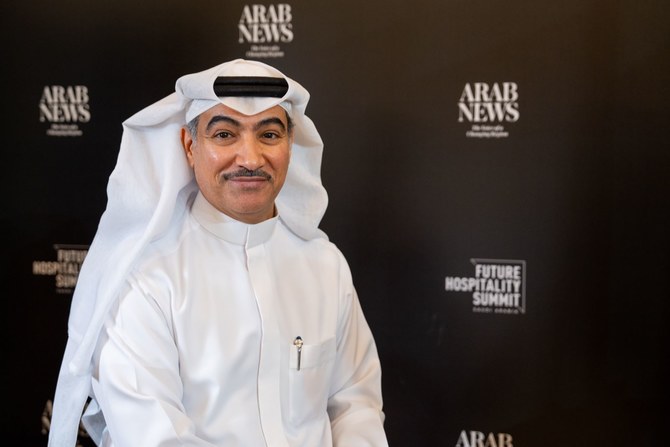
RIYADH: Saudi Arabia’s northwestern city of Hail will be the fifth destination development of Saudi Tourism Investment Co., the firm’s CEO has revealed.
Speaking to Arab News on the sidelines of the Future Hospitality Summit, Fahad bin Mushayt announced the plan, which comes after the activation of the company’s projects in Al-Baha, Yanbu, Al-Ahsa, and Taif.
The projects have all been launched within one year of the Public Investment Fund-owned firm – also known as Asfar – being unveiled.
The company is mandated to invest in new projects and develop attractive travel destinations, incorporating hospitality, tourist attractions, retail, and food and beverage offerings in cities across Saudi Arabia.
Bin Mushayt said: “In almost one year, Asfar is already playing in four destinations, with Hail coming soon, so I can reveal that.”
The entity is working to bridge the gap between the public and the private sector, as well as the local community, to create unique experiences that abide by the DNA of both the nation and the cities themselves, the executive noted.
This notion came to life during the summit, where the company signed a number of agreements with hospitality developers to launch four asset classes in the city of Yanbu.
Among them, Asfar announced the signing of investment agreements with Baheej, a joint venture between the company and the Tamimi-AWN alliance, as well as the Royal Commission for Yanbu.
“This morning, we announced our partnership with Curtain Hospitality, and they are going to be the operator of our resort in Yanbu, under the brand called Cloud 7. So the structure usually involves us and the developer as an investor, and they bring the know-how to build real estate and hospitality,” he said during the second day of the event.
The concept of Yanbu as Saudi Arabia’s most up-and-coming “second-tier city” was not limited to Asfar’s CEO alone.
Speaking on a panel at the summit alongside Mushayt, Abdulrahman Al-Bassam, a board member of Baheej, further emphasized these ideas, stating: “Yanbu is going to be the gateway of the new Red Sea Riviera, with four different asset classes expected to be operational by 2027.”
Adhering to its mandate, Asfar selects a different private sector partner to develop each of their destinations, the CEO explained, saying: “We are here to empower the private sector, to encourage them, to encourage them to go and invest with us. And we give them a lot of incentives.”
He acknowledged that those companies put their money into the subsidiary. However, Mushayt emphasized that they provide “a lot of incentives” as a semi-government entity empowered by PIF, the Ministry of Tourism, and the Ministry of Investment.
The PIF subsidiary utilizes a mix of domestic and foreign investments to empower its initiatives, focusing on operators that are suitable for the needs of the project, Mushayt said.
“The operator, if it’s a hotel operator, we bring a hotel operator; if it’s an adventure park operator, we bring a theme park. In fact, we have a theme park now, and we’re talking to international operators,” he said.
The Asfar CEO further revealed that they have a resort in Yanbu that would require cruises, “so we’re talking to Cruise Saudi, and we’re talking to another international player.”
He added: “It’s a mix of foreign and local operators, investors, and our hospitality management companies.”
HR development fund helps another 74k Saudis get private sector jobs, figures show

RIYADH: Almost 74,000 Saudi nationals received help securing private sector jobs in the first quarter of 2024 by the Kingdom’s Human Resources Development Fund.
The body supported the hiring of 73,878 citizens over the period, as offering advising, training, and empowerment services to more than 1.1 million individuals.
Additionally, during the same period, the organization provided services to more than 72,000 private sector firms across various industries throughout the Kingdom. Approximately 88 percent of these establishments were small and medium-sized businesses.


